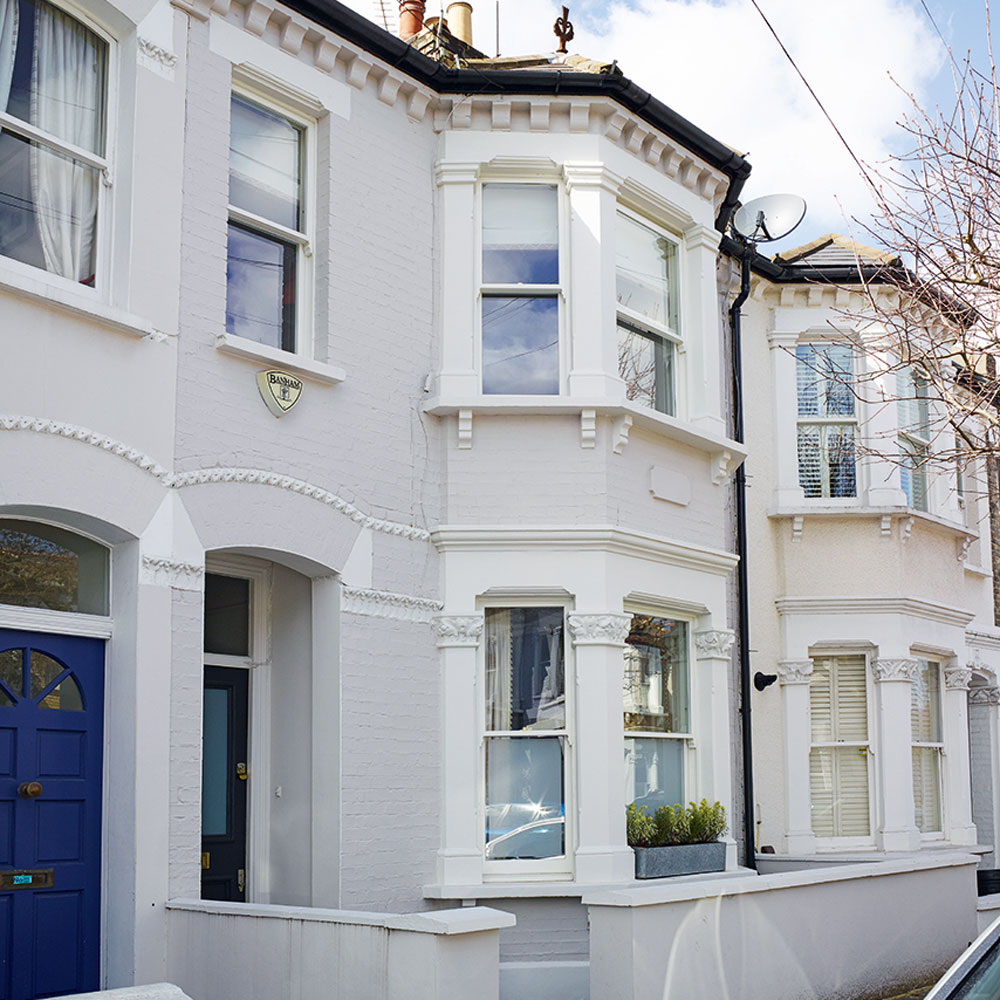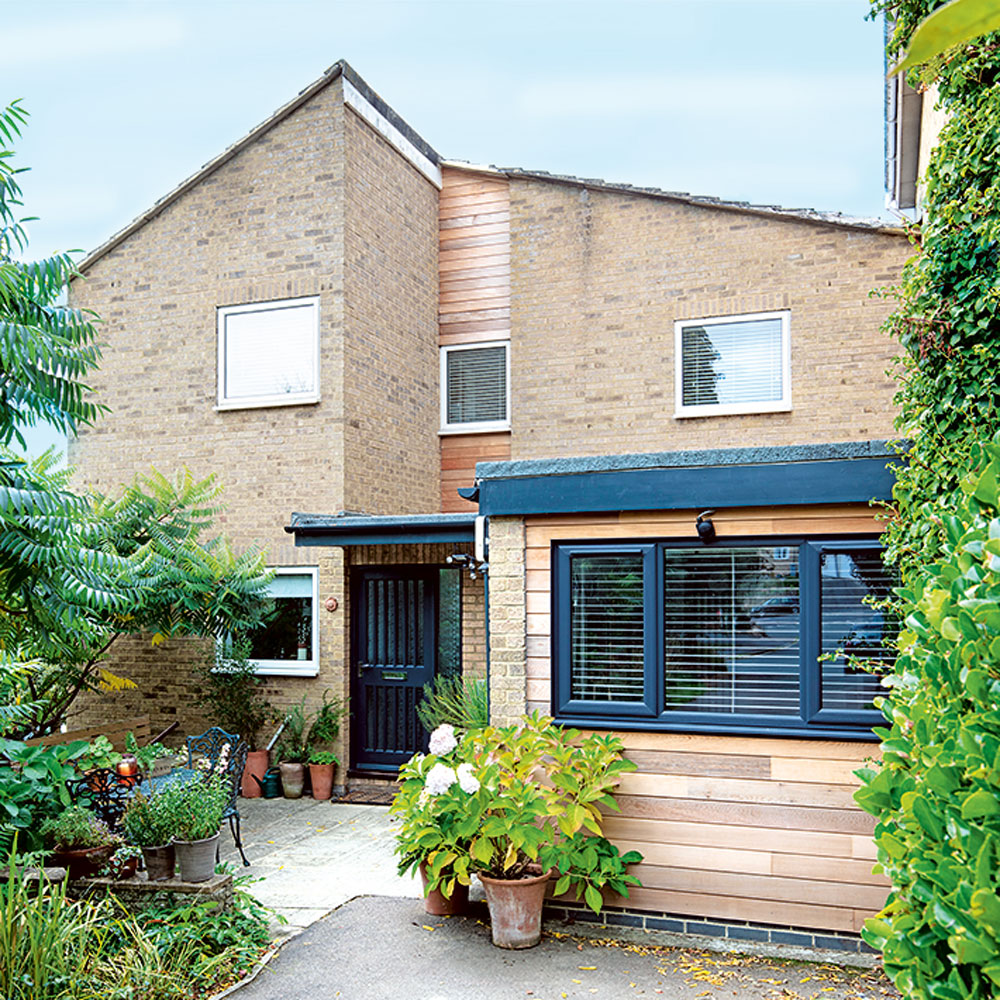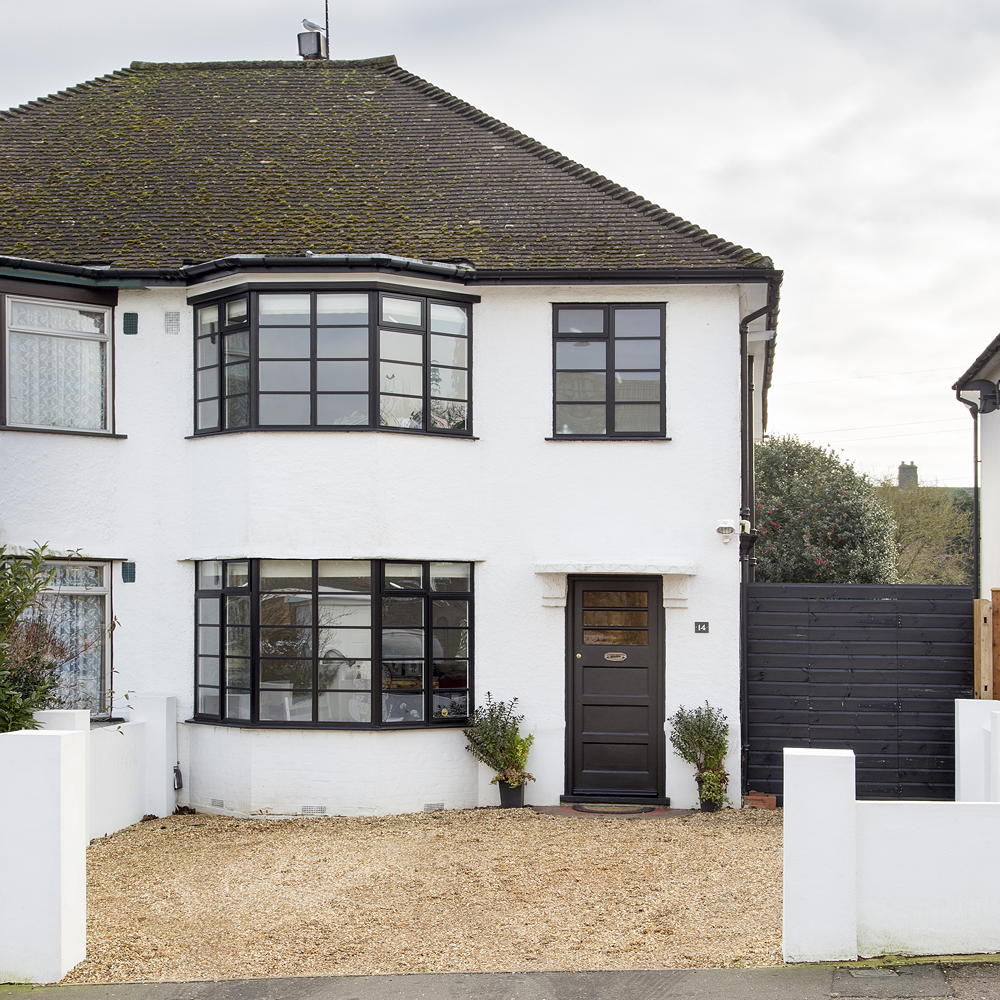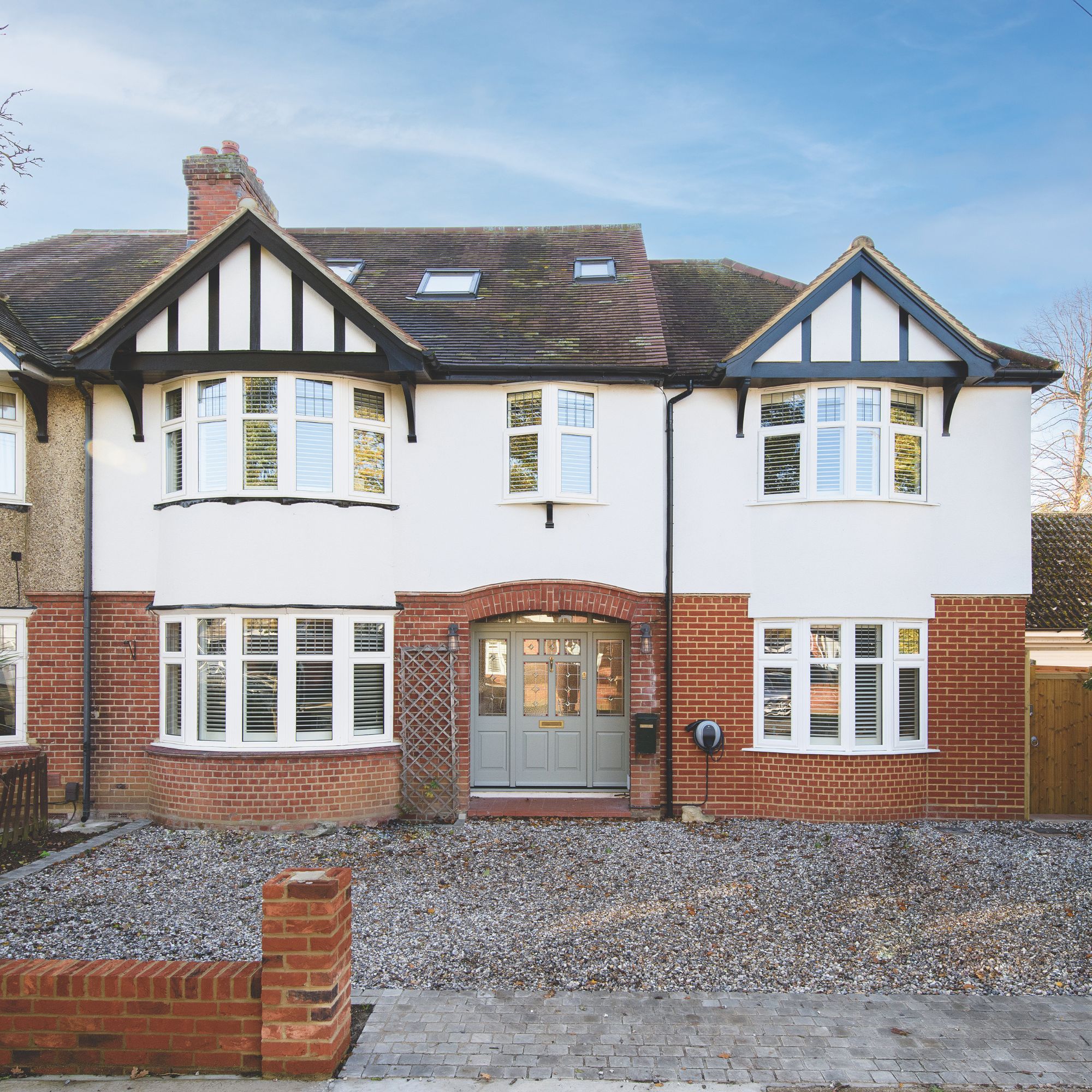Council Tax bands and costs explained
Understand how council tax is calculated - and make sure your property is in the correct price band.

For most tenants and homeowners, council tax is just one of those inevitable things that has to be paid each year. But when your monthly bill arrives, do you give a second thought as to how it’s calculated and what it’s actually for? And if you’ve just relocated, do you know the difference between your old and new council tax when moving house?
In short, what you pay is down to what council tax band your house is valued at. ‘Paying your council tax is vital,’ says Chris Henry, Head of Council Tax & Benefits at Havering Council. ‘It funds so many important services people rely on.’ Recent research by London estate agent Benham and Reeves revealed London’s current council tax bill at a huge £4,993,798,878 per year.
But not everyone living in your area pays the same amount of council tax. You may well find that not everyone on your street even pays the same amount as you do.
Here we’ll guide you through how local councils calculate how much you need to pay, how to identify what council tax band your property lies in, and what to do if you think you’re paying more than you should.
What is Council Tax?

Council tax is the annual fee the local council charges every household in their area.
Paul Honeyben from the policy team at London Councils explains: ‘Council tax is important for ensuring local authorities have the resources they need to fund services for their residents.’
‘Councils are responsible for a vast range of services,’ Paul continues, ‘from bin collections and street cleaning through to social care, public health, and many other crucial services that aren’t always so visible.’
Get the Ideal Home Newsletter
Sign up to our newsletter for style and decor inspiration, house makeovers, project advice and more.
Council tax is a domestic property-based tax which attempts to make sure every household pays their fair share. Along with other government grants, money from council tax goes towards paying for a whole range of services.
We might ordinarily think of these as being free to use, but they present a significant cost for councils to maintain. These include:
- Sports centres, maintaining parks and other recreation spaces
- Police and fire services
- Rubbish, waste and recycling collection and processing
- Libraries and other education resources
- Environmental health and trading standards agencies
- Administration of deaths, births and marriages registers
- Transport and roads services and maintenance
- Organisation of local elections
Each individual local council decides how to allot the money it gets from council tax. The level of funding of specific local council services will vary from one area of the country to another depending on the needs and priorities of that specific local council.
Typically, households pay the annual council tax fee over 10 monthly instalments. Then, for the last two months of that payment year, no further instalments are required.
The amount that you pay depends on the valuation of your property and where in the country you live. Factors which contribute towards how much you can expect to pay can include:
- What particular valuation band your property is in
- How much the council has decided to charge to maintain services
- Your own personal circumstances
Why do I need to pay council tax?
Everyone in the UK aged 18 and over is required to pay council tax.
‘Council tax helps to pay for our bins to be collected or streets to be cleaned,’ explains says Chris Henry from Havering Council, ‘but it’s important to recognise that a significant amount helps to fund adults and children’s care, and supports some of the most vulnerable people in our communities, too.’

A full council tax bill is based on at least two adults living together in the same home. Couples that live together have a joint responsibility for the paying of any council tax bill - this is known as being ‘severely liable’. Even if there is only one name that appears on the bill you are still obliged as a couple and as individuals for any bill you receive.
You are only required to make a payment towards your council tax when you are issued with a bill in your name - or, as a couple, served with a joint taxpayers’ bill.
Normally it will be a person living in a property (be they owner or tenant) who is responsible and liable for the payment of any council tax bill. But sometimes it will fall to the owner of the property to pay.
If you think you may be liable for a property you don’t live in, Citizens Advice lists less straightforward examples of where an owner might be liable.
How is council tax calculated?
In order to work out your council tax you need to know three things:
- which valuation band your home is in
- what your local council charges for properties in that band
- Whether you are entitled to an exemption or a discount from having to pay the bill in full
Worth noting any home renovations that you may undertake, like extensions and loft conversions, can affect the value of your property and your council tax bill. And depending on your household makeup, you could possibly qualify for a discount - sometimes as much as 25%.
What are council tax bands?
The amount of council tax you pay is based on a valuation of your property which was taken by the Valuation Office Agency (or VOA) in 1991.
A spokesperson for the VOA says ‘Council tax valuations are based on the value of properties that aren’t used for business purposes. Different values put properties into different “bands”. From that valuation your property would have been put in a particular band which corresponds to a range of values.’
A property will be placed in one of eight bands, A to H (A being the lowest) according to its assessed value on 1 April 1991.
Although property prices may have increased or decreased since then, this does not affect a set band, unless and until a council tax revaluation takes place.
| Council tax band | Ranges of value |
|---|---|
| A | Up to £40,000 |
| B | £40,000-£52,000 |
| C | £52,000-£68,000 |
| D | £68,000-£88,000 |
| E | £88,000-£120,000 |
| F | £120,000-£160,000 |
| G | £160,000-£320,000 |
| H | More than £320,000 |
There are different property bands in Scotland:
| Council tax band | Ranges of value |
|---|---|
| A | Up to £27,000 |
| B | £27,000-£35,000 |
| C | £35,000-£45,000 |
| D | £45,000-£58,000 |
| E | £58,000-£80,000 |
| F | £80,000-£106,000 |
| G | £106,000-£212,000 |
| H | More than £212,000 |
Property bands were reassessed in Wales in 2003. This resulted in 9 different bands (A-I) with adjusted price ranges:
| Council tax band | Ranges of value |
|---|---|
| A | Up to £44,000 |
| B | £44,000-£65,000 |
| C | £65,000-£91,000 |
| D | £91,000-£123,000 |
| E | £123,000-£162,000 |
| F | £162,000-£223,000 |
| G | £223,000-£324,000 |
| H | £324,000-£424,000 |
| I | More than £424,000 |
Council tax does not operate in Northern Ireland - a modified version of domestic rates is in place instead.
For newly built properties, an assessment is made by the Valuation Office Agency in England and Wales. New properties in Scotland are valued by the Scottish Assessors Association (SAA).
You can check your council tax band on the gov.uk website (England & Wales):
For properties in Scotland, you can search for your council tax band via the SAA.
How are properties assessed for council tax

It’s the role of the VOA (for England and Wales) and the SAA (for Scotland) to assign a council tax band for new properties. They also make sure that existing properties are in the correct council tax band.
‘When assessing the council tax banding of a property, we carefully consider various factors including its size, character and location.’ explains a spokesperson from the VOA. ‘Each banding depends on the facts of the individual case. This means that small differences can result in properties having different bandings.’
The band in which a property lies can change. There are a number of factors that could mean that a property is revalued, for instance, if a property is made smaller or extended.
Also, if there is a change in use or purpose of the property (for example, if there is a business use reported), then this too can affect the valuation band.
When a new property has been built or there has been a change of use (for example, a conversion from non-domestic building into a house or flats) an assessment will be made for its council tax band.
If you move into a property that doesn’t already have a council tax band you should get in touch with your local council. They will then provide the Valuation Office Agency (VOA) or Scottish Assessors Association (SAA) with the details of the property they need to assign it to a band.
If you’re renovating your property, it’s worth considering how it might affect the amount of council tax you pay, as any significant increase to the value of a house due to renovations could take you into a higher valuation band.
Despite this, your council tax will not increase immediately. Only if and when your property is put up for sale will the Valuation Office Agency (VOA) assign a new value and band.
In some cases, if the VOA needs more information they might arrange a visit to the property. This will usually only require an inspection of the outside of the property.
But what happens if you feel your council tax band is incorrect?

In the first instance, it’s worth doing a bit of research before making an appeal. Make some enquiries about similar properties to yours in your immediate area.
Chris Henry from Havering Council says ‘You can challenge your council tax band valuation at gov.uk or call the VOA on 03000 501501 for more information.
But with everything, make sure you do your homework first. The VOA’s spokesperson agrees. ‘When appealing your current banding,’ they say, ‘you should be aware that your band could go up as opposed to down, based on the analysis of the evidence provided and gathered.’
What do I pay for each council tax band?
Depending on which price band your property lies in, you will be charged different amounts of council tax by your local council.
The final figure that appears on your bill depends on your property’s council tax band and how much money your local council needs to raise to maintain or improve services.
Every year between December and February, local councils will work out their budgets for the next 12 months. At this point, they also set out their projected council tax levels. You will then usually receive your council tax bill for the year ahead in March or April.
Paul Honeyben from London Councils says ‘Every London borough sets its own level of council tax, although these powers are subject to significant control by central government. For example, the maximum permitted increase next year will be 3% in London boroughs without triggering a local referendum.’
Councils have the power to raise bills by up to 2%. If a council proposes a rise higher than 2%, then they have to seek permission for this by means of a local referendum. A further 1% can be added by councils who have responsibility for social care.
Are there any exemptions to council tax?
There are a few exceptions. Although not the norm, some properties are exempt from council tax. Also, depending on personal circumstance, some individuals do not have to pay council tax at all - not being counted or ‘disregarded’ when it comes to owing council tax.
‘A range of discounts and exemptions apply, such as a council tax single person discount for those living alone or people that have a disability.’ explains Paul Honeyben from London Councils. ‘Those on low incomes may also be eligible for council tax support to reduce their bill. If this is the case then a household might be able to apply for a discount to their council tax bill.’
You can be ‘disregarded’ for council tax if you are:
- Under 18 years of age
- 18 or 19 years old and in full-time education
- aged 25 years old and benefit from the Education and Skills Funding Agency
- a full-time student at university or college
- a live-in carer - for someone who is not a spouse or partner, or a child under 18
- a student nurse
There are also other specific exemptions which relate to foreign language assistants and those involved with the diplomatic service.
Exemptions to council tax are not automatic and must be applied for, even if you clearly correspond to those that are normally ‘disregarded’.
If everyone in your household is disregarded, you might expect to get up to a 50% reduction in your council tax bill. You might also see a 25% discount to your bill if you:
- live on your own
- live in a household where everyone apart from you is disregarded.
There are also discounts to council tax available if you are on certain apprenticeship schemes. Documentation and a declaration from your employer is required to show that you do in fact qualify.
If you happen to find that you have been given a council tax discount by mistake, you must report it to your local council. Failure to do so might make you liable to a fine. Also, the council may ask for the repayment of any discount you’ve received in error.

Ginevra Benedetti has been the Deputy Editor of Ideal Home magazine since 2021. With a career in magazines spanning nearly twenty years, she has worked for the majority of the UK’s interiors magazines, both as staff and as a freelancer. She first joined the Ideal Home team in 2011, initially as the Deputy Decorating Editor and has never left! She currently oversees the publication of the brand’s magazine each month, from planning through to publication, editing, writing or commissioning the majority of the content.
-
 Martin and Shirlie Kemp’s pastel flower beds has given their Victorian renovation a romantic look - how you can get the look
Martin and Shirlie Kemp’s pastel flower beds has given their Victorian renovation a romantic look - how you can get the lookTheir pastel garden is the cottage garden inspo you've been looking for
By Kezia Reynolds
-
 7 outdated rules to ignore when designing a small patio – experts say ditching them will transform your space
7 outdated rules to ignore when designing a small patio – experts say ditching them will transform your spaceThese are the traditional patio design rules you don’t always need to follow
By Rebecca Lawton
-
 Who is responsible for repairing a party wall?
Who is responsible for repairing a party wall?How to find out who should be organising and paying for the work
By Natasha Brinsmead
-
 You can claim back over £300 a year from HMRC if you work from home - here’s how to check if you’re eligible
You can claim back over £300 a year from HMRC if you work from home - here’s how to check if you’re eligibleWhen it comes to saving, every little helps
By Kezia Reynolds
-
 Experts have revealed the best day to renew your home insurance policy - you’ll want to do it sooner rather than later
Experts have revealed the best day to renew your home insurance policy - you’ll want to do it sooner rather than laterDon't leave this task at the bottom of your to do list
By Kezia Reynolds
-
 Is a variable rate mortgage ever a good idea? Experts weigh in
Is a variable rate mortgage ever a good idea? Experts weigh inOur money expert explains what a variable rate mortgage is, who they can be good for, and the pros and cons of this kind of mortgage
By Samantha Partington
-
 I’m a first-time buyer, what are my chances of getting a mortgage right now?
I’m a first-time buyer, what are my chances of getting a mortgage right now?And what you can do to increase your odds
By Rachel Wait
-
 Should you ever pay above the asking price for a home?
Should you ever pay above the asking price for a home?Our money expert explains whether you should ever pay over the asking price for a home, especially if house prices fall as predicted
By Samantha Partington
-
 Should I fix my mortgage and how long should I fix for?
Should I fix my mortgage and how long should I fix for?We speak to the experts to find out whether you should fix your mortgage and how long for as well as the impact further interest changes could have on your decision
By Samantha Partington
-
 We put your mortgage questions to two leading experts, here's what they said
We put your mortgage questions to two leading experts, here's what they saidAs mortgage panic continues, we've answered the most common questions - from when mortgage rates will come down, to when you actually have to pay stamp duty
By Samantha Partington
-
 'My mortgage is set to skyrocket - what should I do?' 5 potential solutions from a money expert
'My mortgage is set to skyrocket - what should I do?' 5 potential solutions from a money expertIf you're facing higher mortgage costs, our money expert explains various courses of action you could take to ease the pressure
By Samantha Partington